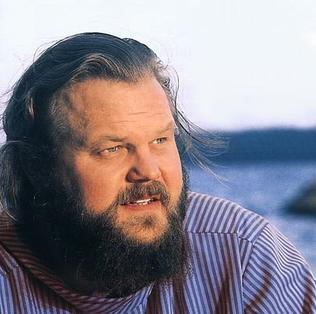
Martti Olavi Talvela was a Finnish operatic bass.
James King was an American operatic tenor who had an active international singing career in operas and concerts from the 1950s through 2000. Widely regarded as one of the finest American heldentenors of the post-war period, he excelled in performances of the works of Richard Wagner and Richard Strauss.
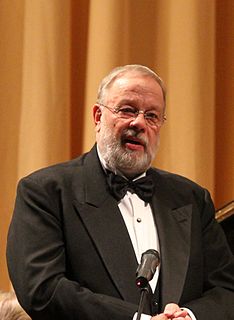
Matti Kalervo Salminen is a Finnish operatic bass, now semi-retired, who has sung at the most important opera houses of the world, including the Metropolitan and Bayreuth Festival. He is distinguished by an imposing figure and height, a cavernous, heavy, dark voice with an expansive upper register, and an expressive face. According to one reviewer, in his prime Salminen was "... simply the largest bass voice in captivity. It is not just its roar in powering over Wagner's maximum orchestra, but the way he carves the sonority and forms the color."

Lyuba Welitsch was an operatic soprano. She was born in Borisovo, Bulgaria, studied in Sofia and Vienna, and sang in opera houses in Austria and Germany in the late 1930s and early and mid-1940s. In 1946 she became an Austrian citizen
Josef Greindl was a German operatic bass, remembered mainly for his performances of Wagnerian roles at Bayreuth beginning in 1943.
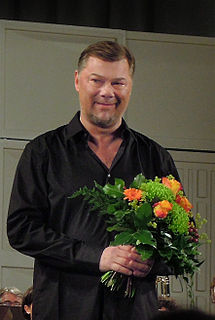
René Pape is a German operatic bass.
Ludwig Weber was an Austrian bass.
Arnold van Mill was a Dutch opera singer who specialised in bass.
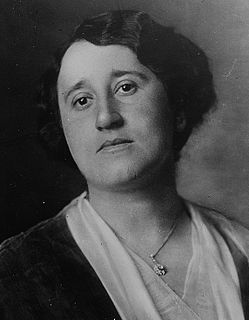
Melanie Kurt was an Austrian opera singer (soprano).
Karl Ridderbusch was a German operatic bass, associated in particular with the music of Wagner. He was recognised as a notable exponent of the role of Hans Sachs.
Herbert Alsen (October 12, 1906 – Some time in October, 1978 was a German operatic bass of formidable volume and stature.
Dezső Ernster was a Hungarian opera singer who sang leading bass roles with the New York Metropolitan Opera from 1946 to 1963. In 1929, he created the role of Baron d'Houdoux in Hindemith's Neues vom Tage.
Stephen Milling is a Danish operatic bass who has had an active international career since the mid-1990s. Although his repertoire encompasses a wide range, he is particularly known for his portrayals in the operas of Richard Wagner.

Edyth Walker was an American opera singer who had an active international career from the 1890s through the 1910s. She began her career performing roles from the mezzo-soprano repertory, but later successfully added several soprano parts to her repertoire as well. While she did perform in Italian and French language operas, she had a clear affinity for works in the German language. She particularly excelled in the operas of Richard Wagner. After retiring from the stage, she was active as a voice teacher in both France and the United States. Her voice is preserved on several gramophone recordings, made mainly for His Master's Voice, between 1902-08.
Gerd Nienstedt was a German and Austrian opera singer, bass and bass-baritone. After an international career at major opera houses and the Bayreuth Festival, he was also a theatre director, stage director and academic voice teacher.
Mikhail Petrenko is an opera singer who sings bass. His father Mikhail is an artist. His mother Olga teaches music, piano, and organ at University of St. Petersburg.
Ludwig Hofmann was a German opera singer (bass), who from the late 1920s obtained worldwide recognition above all as an exponent of Wagnerian roles. He worked principally in the opera houses in Berlin and Vienna and in the Vienna State Opera, and from 1928 to 1942 was frequently involved in the Bayreuth Festivals.
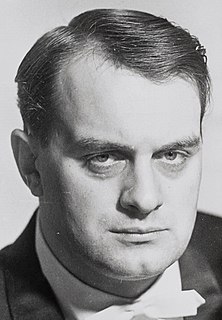
Siegfried Vogel is a German operatic bass. Based at the Staatsoper Berlin, he performed internationally at major opera houses and festivals, including the Salzburg Festival and the Bayreuth Festival. He began in Mozart roles, but expanded his repertoire, including world premieres of operas.
Ernst Wiemann was a German operatic bass.

Enid Szánthó was a Hungarian operatic contralto. From 1928, she belonged to the ensemble of the Vienna State Opera and appeared at the Bayreuth Festival from 1930, first as Erda in Der Ring des Nibelungen. She gave guest performances in opera and concert in Florence, London, Berlin, Paris and at the Metropolitan Opera in New York where she made her debut as Fricka in 1938. Her career was de facto ended later that year when Austria came under Nazi regime.









